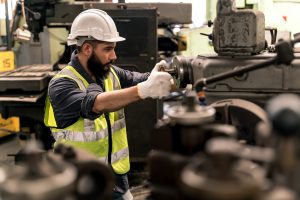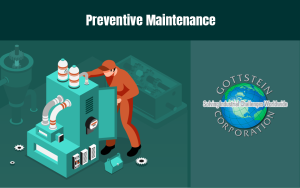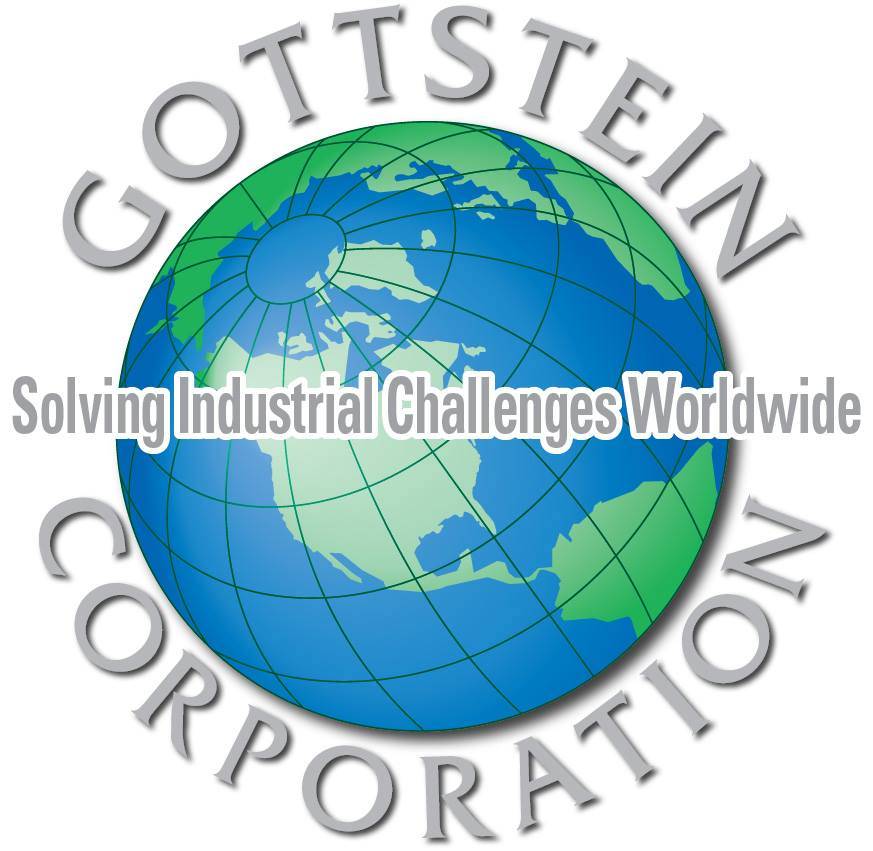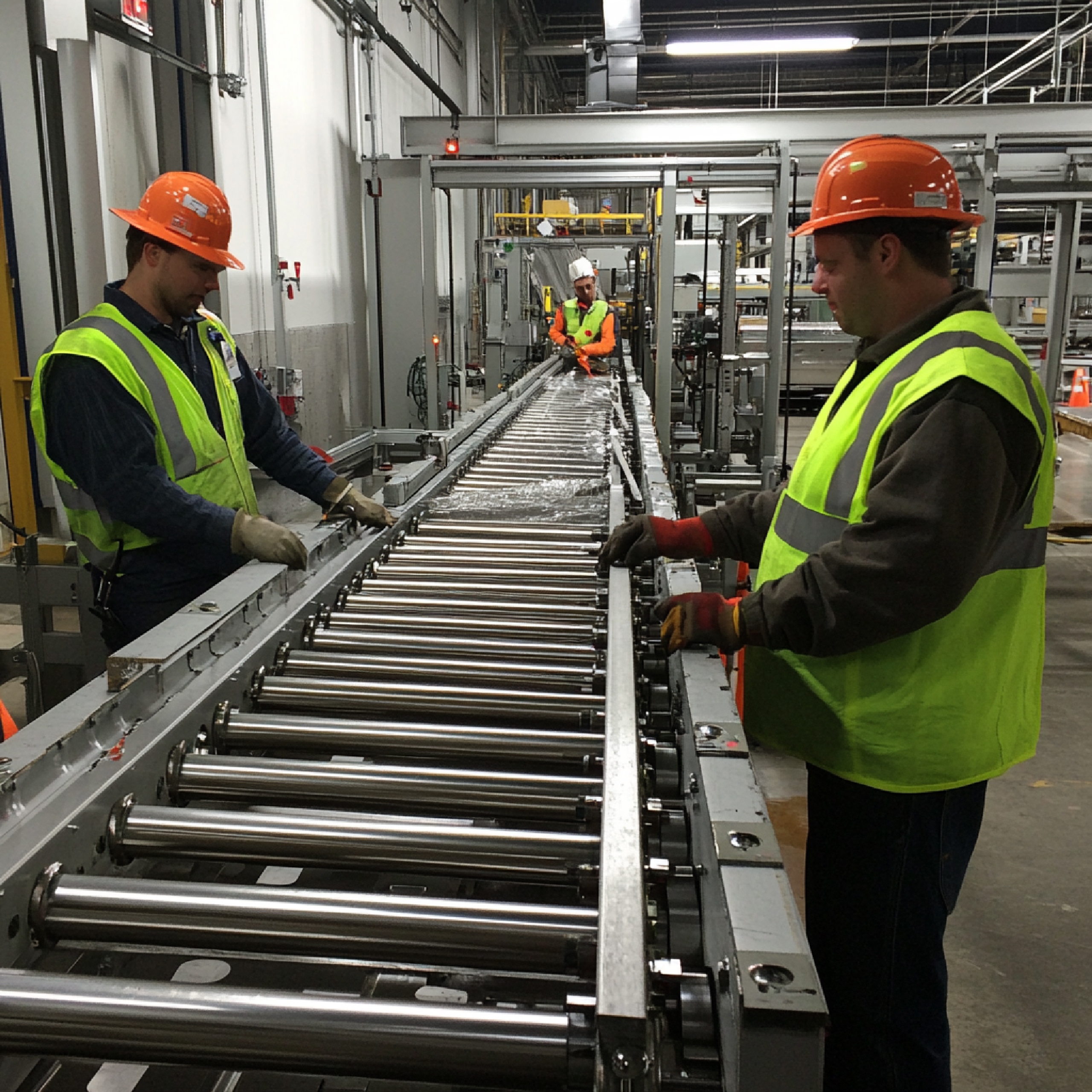Every industrial facility shares a common challenge: how to keep equipment running smoothly, safely, and efficiently.
Machines are the heartbeat of production—but when they break down, the consequences are immediate: halted operations, wasted materials, delayed shipments, and frustrated customers.
The solution is preventive maintenance for industrial equipment. Rather than waiting for machinery to fail, preventive maintenance schedules inspections, servicing, and adjustments in advance. This proactive approach keeps production lines running, lowers costs, and extends equipment lifespan.
At Gottstein Corporation and Boyd Industries, we specialize in preventive maintenance programs designed for the food and beverage sector. From millwright services and custom fabrication to packaging equipment and refrigeration systems, our solutions are tailored to meet the industry’s strict safety, sanitation, and compliance requirements.
The True Cost of Equipment Downtime
Unplanned downtime isn’t just an inconvenience—it’s expensive. A 2023 Deloitte study found that downtime can cost manufacturers $260,000 per hour on average, depending on the industry. In food and beverage, the risks are even greater:
-
Lost product batches when processing halts unexpectedly
-
Contamination risks if equipment malfunctions during production
-
Spoiled inventory from refrigeration breakdowns
-
Delayed customer shipments leading to lost trust
Preventive maintenance reduces these risks significantly. By planning maintenance around production schedules, facilities avoid sudden breakdowns and keep costs under control.

Why Preventive Maintenance Matters
1. Minimize Downtime
Planned service ensures that inspections, lubrication, and adjustments happen on schedule—before equipment breaks. This reduces costly interruptions to production.
2. Lower Repair Costs
Emergency repairs often require expedited parts, after-hours labor, and extended downtime. Preventive maintenance fixes small issues before they become large and expensive.
3. Extend Equipment Lifespan
Machinery is a major capital investment. Preventive maintenance protects that investment by maximizing its service life, often adding years of reliable use.
4. Ensure Safety & Compliance
For food and beverage facilities, compliance with OSHA, FDA, and USDA standards is non-negotiable. Preventive maintenance helps facilities stay audit-ready.
5. Boost Energy Efficiency
Well-maintained machines use less power. Proper alignment, lubrication, and calibration reduce friction, overheating, and wasted energy—lowering utility costs.
Preventive Maintenance in Food & Beverage Facilities
The food and beverage industry presents unique challenges. Equipment must not only run efficiently but also meet strict sanitary standards. Preventive maintenance in this sector ensures that:
-
Conveyors remain aligned, clean, and contamination-free
-
Packaging systems maintain consistent quality and uptime
-
Refrigeration units deliver steady cooling to preserve safety
-
Piping and fluid systems stay free of buildup or leaks
At Boyd Industries, our expertise with conveyors, hydro-coolers, and packaging equipment makes us a trusted partner for maintenance. Together with Gottstein’s Industrial Services, we deliver end-to-end solutions tailored to food and beverage operations.

Preventive Maintenance Services We Provide
Our preventive maintenance programs cover every aspect of facility operations:
-
Millwright Services – Alignment, dismantling, relocation, and installation of industrial equipment (Millwright Services)
-
Custom Fabrication – Tailored modifications to equipment and structures that improve accessibility and performance (Fabrication & Machining)
-
Packaging Equipment Maintenance – Keeping high-speed packaging lines reliable, sanitary, and compliant (Packaging Equipment)
-
HVAC & Refrigeration Maintenance – Ensuring reliable cooling, airflow, and climate control to maintain product quality
-
Electrical Systems Care – Inspection and servicing of critical electrical infrastructure
-
Rigging & Facility Relocation – Safe handling of heavy machinery with precision and efficiency (Facility Relocations)
-
Emergency Response – 24/7 repair support when urgent issues occur
-
Comprehensive Reporting – Detailed inspection logs and compliance-ready documentation
Best Practices for Preventive Maintenance
To maximize effectiveness, companies should adopt proven strategies:
-
Conduct a Baseline Audit – Map all critical equipment and create a starting point for scheduling.
-
Establish Maintenance Intervals – Daily, weekly, monthly, and annual checks ensure all systems are covered.
-
Use Digital Checklists & Logs – Digital records improve accountability and make compliance audits easier.
-
Train Employees – Equip teams with the knowledge to spot early warning signs such as vibrations, leaks, or unusual noises.
-
Plan Downtime Strategically – Schedule maintenance during natural production lulls.
-
Stock Critical Spare Parts – Having parts on hand reduces delays when components wear out.
-
Leverage Predictive Tools – Vibration analysis, thermal imaging, and smart sensors can catch problems early.
-
Review & Adjust – Maintenance programs must evolve with equipment age, usage, and production demands.
Real-World Results: What Companies Gain
Studies show that preventive maintenance delivers measurable benefits:
-
40–60% fewer breakdowns compared to reactive strategies
-
25–30% lower energy consumption due to optimized machinery performance
-
20–30% longer equipment lifespan
-
Improved compliance readiness, reducing regulatory risks
-
Stronger workplace safety thanks to properly maintained equipment

Preventive vs. Reactive vs. Predictive Maintenance
To understand the value of preventive maintenance, it’s important to compare it with other approaches:
-
Reactive Maintenance – Waiting for failure before repairing. High costs, long downtimes, and safety risks.
-
Preventive Maintenance – Scheduled care based on usage or time intervals. Balanced, cost-effective, and reliable.
-
Predictive Maintenance – Advanced monitoring tools that forecast failures using data analytics and sensors. Powerful but requires higher upfront investment.
For most facilities, preventive maintenance offers the best balance of cost and reliability, especially when supported by expert partners like Gottstein and Boyd.
Preventive maintenance is more than a task list—it’s a strategic advantage. By planning maintenance in advance, facilities can reduce downtime, save money, extend equipment life, and ensure compliance with the strict standards of the food and beverage industry.
At Gottstein Corporation and Boyd Industries, we combine decades of expertise with industry-specific knowledge to deliver customized preventive maintenance programs. From millwright services and packaging equipment support to refrigeration systems and custom fabrication, we keep your facility running at peak performance.
👉 Don’t wait for a costly breakdown. Contact us today to build a preventive maintenance program that protects your investments and drives long-term success.

